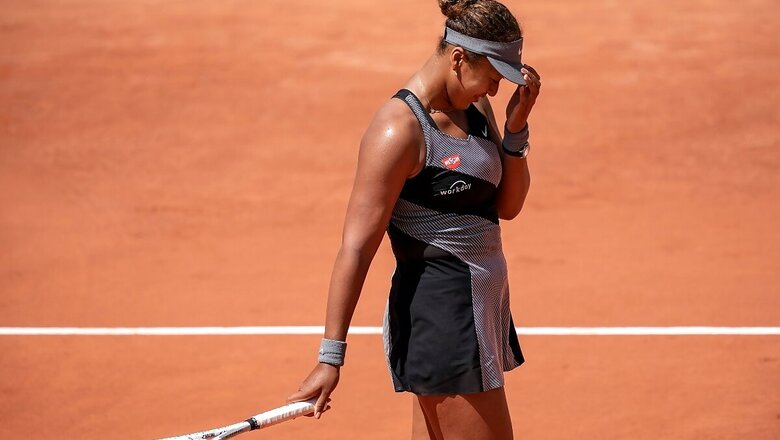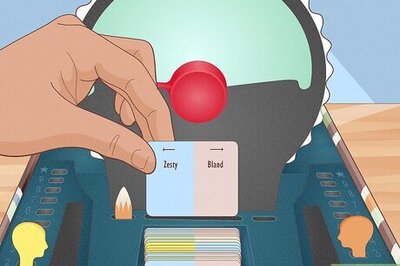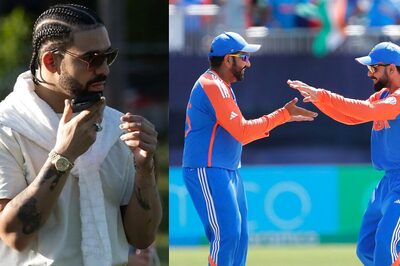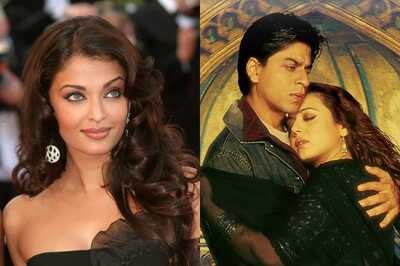
views
23-year-old Tennis star Naomi Osaka has the world at her feet. The current world number two has won four Grand Slams in her career that started not long ago. She also made history as the first Asian tennis player to become world number one. On top of that, she’s also a successful fashion designer and a youth icon.
However, that doesn’t mean her life is just sunshine and positivity. She recently made headlines after her shocking withdrawal from the French Open, where she was fined USD 15,000 for refusing to take part in press conferences for mental health reasons. In a statement, Naomi revealed she went through “bouts of depression” and needed to take care of her mental health. Her withdrawal has re-started the discourse around the importance of mental health in sports.
This development might not have been as shocking had her Netflix documentary released before the tournament. In hindsight, it isn’t that surprising that the athlete had to press pause on her bustling career for her mental health.
In the three-part self-titled docu-series that released on Friday, Naomi talked about her journey to the top, facing wins and losses in her career and how the spotlight affects her personal life. This is like the most generic documentary about celebrities nowadays. We begin with a high, watch them hit a low point and rise again. Content-wise, that’s what happens on the show, but when you pay attention to the narration, Naomi is quite unhappy through all of it.
We meet her at probably what feels like the high of any tennis player’s career. She defeats Serena Williams at the age of 20 and the legend reciprocates the admiration by giving her a warm hug. We then see her pass on that warmth to then 15-year-old Coco Gauff. After beating her, she asks Coco to do the interview with her, because she wants her to know how proud everyone is of her, despite the outcome of the match.
The entire point of the documentary is to show that Naomi is special. Her admirers include Colin Kaepernick and late Kobe Bryant, who was her friend and mentor. She also follows her interest in fashion designing and launches a successful line with a leading brand.
The first episode shows her highs. Her wins, her big house, her loving boyfriend, her icon status. But even then, Naomi sounds a little off. Despite all of it, she is lonely. We don’t know if it is because of something she is going through or because she plays such an isolating sport. Or maybe that’s how hindsight works.
It’s the second episode where we see her hit a low point. While it is something that most athletes in the spotlight deal with, Naomi struggles to create a boundary between her professional and personal life. When she loses the 2020 Australian Open to Coco Gauff, we see just how personally she takes the defeat.
In a heartbreaking scene, she says, “I have always associated my self-worth with how good I was, and what I am known for is being a tennis player. So what am I if I am not a good tennis player.” She wishes she had, what she says is a ‘champion mindset’ where an athlete is able to ‘live with not playing their 100%.’ You can see how seriously she takes everything. Probably that makes her the best. But it’s also what makes her so visibly unhappy.
On her 22nd birthday, her sadness is more apparent than ever. Naomi asks her mother if she is doing what is “acceptable” at her age. Her mother says, “more than acceptable.” Even when everyone around her says that they are proud of her, she doesn’t feel it. Maybe this stems from the fact that she and her sister Marie played tennis since they were three. They played for eight hours every day and were homeschooled. Naomi never knew anything outside of her sport. It can also be from the fact how minority families feel the pressure to constantly prove themselves.
Naomi was born in Japan to a Japanese mother and Haitian father. Her dad, whose dream was to see their daughters become athletes, talked about how he never became a Japanese despite living there for years. Her mom, on the other hand, had to work extremely hard not to be broke. They moved to America when she was three.
The third episode takes a deeper look into her identity with respect to her culture. At the beginning of the episode, we see her talking about receiving hate for choosing to play for Japan during the 2020 Olympics. Naomi has always played for the country, and at that time was considering surrendering her dual citizenship to play for Japan.
Naomi says that people online said that her “Black card is revoked.” She then goes on to explain how race and nationality are two different things altogether. We then see the very real relevance of the discourse around her race. A little into the third episode George Floyd is choked to death by the Minnesota police, sparking a worldwide movement against racial profiling and police brutality against Black people.
Naomi, who isn’t in the US during the first wave of protests talks about the pressure of maintaining a pristine image and not getting into ‘controversy.’ She then joins the protests. However, her biggest contribution to the Black Lives Matter movement is when she withdraws from playing the Semi-final match of the US Open qualifier. Her step, inspired by the NBA and WNBA protests, makes tennis halt for an entire day. Even during the seven matches of the US Open, which she goes on to win, she wears seven masks with the names of seven Black people killed for their race, starting from Breonna Taylor and Jacob Blake to Ahmaud Arbery and George Floyd.
This is not the only time we hear her grapple with her culture and identity. By the end of the episode, we go to Haiti, which is her father’s homeland. Naomi spends quality time there with her family and tries to discover her roots.
Unlike other sports documentaries, there is an element of sadness in this ‘Naomi Osaka.’ Or maybe that is because it doesn’t make an effort to fit into the mould of ending it on a high note. Throughout the show, we see long closeups of her face when she isn’t aware the camera is on her, and there is just a lot of weight that she is carrying. Even in the end, we see her on a ferry, looking out to sea instead of her riding off to the sunset in a blaze of glory.
We don’t know if that is a conscious decision by the makers or a result of Naomi’s mental state. While the show doesn’t document her recent hiatus, the time of its release might be an effort to actually show her side of the story.
Naomi Osaka is a very effective documentary. It is rooted in reality. It talks about a special woman who doesn’t need a victory sequence to prove her talent. And for that reason why we should all watch it.
Read all the Latest News, Breaking News and Coronavirus News here.




















Comments
0 comment